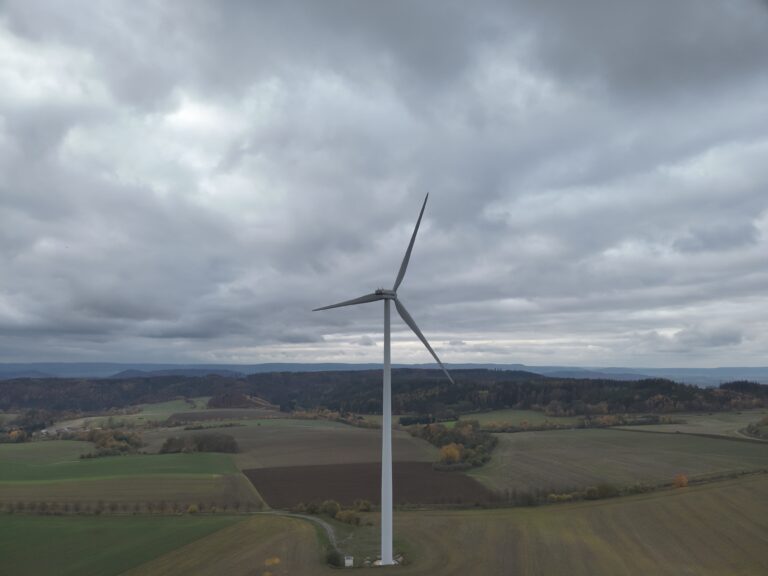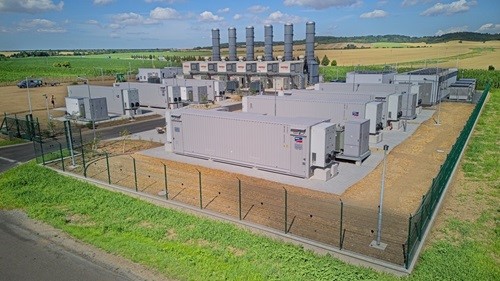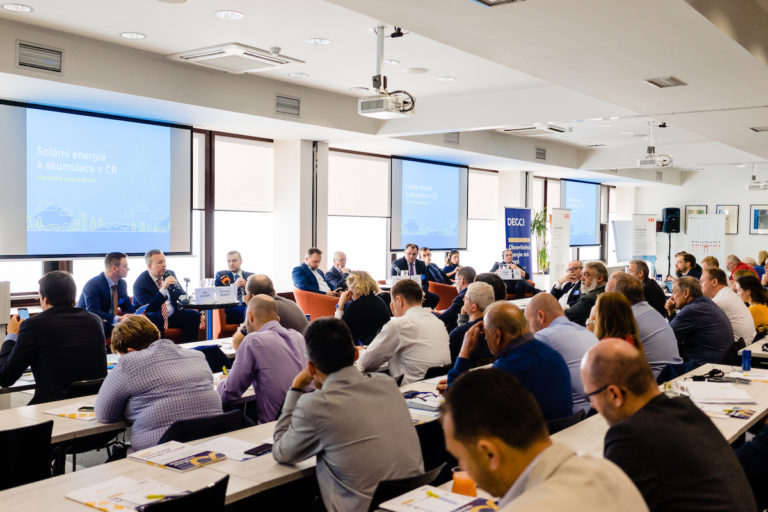[Prague – July 10, 2024] – Decci Group is starting the operation of a hybrid energy source of ancillary services (AnS) with the largest battery storage in the Czech Republic in the village of Vraňany, in the district of Mělnik. Energy nest has a total installed output of 52,4 MW including the battery storage and combines innovative technologies with a custom-developed software system that stabilizes the transmission network.
This modern energy source flexibly responds to surpluses or deficits in the grid, and outside of active service, remains in standby mode with a zero-emission footprint, eliminating the need for inefficient fuel usage. Energy nest is not only a flexible and innovative solution, but also an environmentally-friendly energy source.
Changes in the energy mix, the planned phase-out of conventional energy solutions, and the increasing share of renewable energies will be a source of instability and fluctuation in the electrical grid. Therefore, new sources of ancillary services (AnS) for power balance, stability, and security of the electrical grid are currently being sought. The hybrid energy source, Energy nest, with a total current output of 30 MW to the grid, represents such a solution by combining gas turbines and battery storage, and opens a range of possible solutions for providing ancillary services for power balance.
Energy Nest Reacts to a Changing Energy Environment
“By 2030, renewable energy sources are expected to account for a quarter of electricity production. However, these sources are unable to provide ancillary services and ensure grid stability. On the other hand, coal-fired power plants, which account for nearly 60% of electricity production and ensure grid stability, are scheduled to be decommissioned. If we want to maintain a safe and stable electrical grid in the future, we must look for new sources. Energy nest separates electricity production from providing ancillary services (AnS) for power balance and represents a solution that responds to future energy needs today,” says Darina Merdassi, CEO of Decci Group, a.s., and member of the board of E.nest Energy a.s., about the project, adding, “Energy nest will be able to secure ancillary services (AnS) to the same extent as those provided by a 300 MW coal-fired power plant, and thus, contributing to achieving national climate goals.”
An Innovative Energy Solution
The innovative nature of the solution lies in the combination of different technologies, specifically gas turbines with a total output of 32,4 MW technically derived from aircraft engines and a battery storage system, which, with an output of 20 MW and a capacity of 22 MWh, is the largest in the Czech Republic. The technologies communicate with each other using a software system, complement each other, and eliminate each other’s weaknesses.
Czech Transmission System Operator (ČEPS) analyses show that the current development of the energy sector could lead to a dramatic decline in regulatory power for providing ancillary services (AnS) for power balance. The hybrid energy source can provide any combination of ancillary services, namely: Frequency Containment Reserve (FCR), automatic Frequency Restoration Reserve (aFRR+), or manual Frequency Restoration Reserve (mFRR+) up to a total output of 30 MW. It is also possible to provide any combination of these services that does not exceed the same limit. In the future, the extension of provided services is available up to 52,4 MW, while using the current technologies.
Modular and Flexible Design
“The Energy nest source was designed to allow for capacity increase, if needed, or easy expansion with other similar hybrid systems. It is a modular, scalable, and easily replicable solution that, thanks to its container design, occupies only an area of one hectare. At the same time, it exhibits top availability and reliability parameters. In the future, there is also the possibility for the facility to produce green hydrogen,” explains Darina Merdassi, highlighting further advantages provided by Energy nest.
The construction of the hybrid energy source was carried out by Siemens, s.r.o., with the main technology suppliers being the British company, Centrax Ltd, UK, and the German company, SMA Altenso, GmbH. The project also significantly involved Czech consulting firms Euroenergy, s.r.o, Nano Energies, and OSC, a.s.
The Czech Institute of Informatics, Robotics, and Cybernetics (CIIRC), at the Czech Technical University (CTU), developed a custom software system for the energy project.
Group Decci obtained a club loan of 750 million CZK from leading banking institutions, Česká spořitelna a.s. and Komerční Banka a.s., for project financing.
About DECCI Group
We are DECCI, a modern energy group, operating in the renewable energy market since 2007. Through our subsidiaries, we own, implement, and operate a portfolio of energy projects in the field of renewable resources as well as modern energy. Our long-term mission is to create decentralized and climate-friendly energy solutions that react responsibly to the changes in the future energy mix and creates reliable energy infrastructure.
About AKU-BAT
DECCI group is a founding member of the Energy Storage Association (AKU-BAT), which brings together the most important entities active in the field of energy storage and is a founding member of the Union of Modern Energy. AKU-BAT supports the cooperation of its members across the entire spectrum of services, from the use of storage in industry, energy, or as a flexibility element, through e-mobility to the development of hydrogen technologies.
Media Contact
Martin Hubáček
decci@decci.cz
+420 233 321 611



